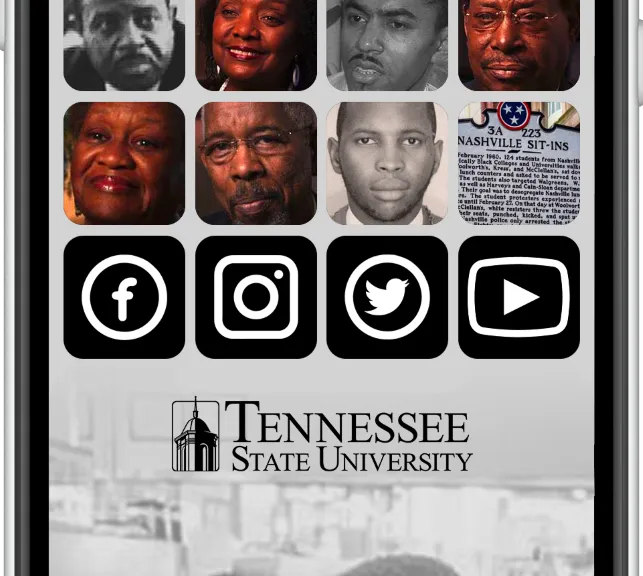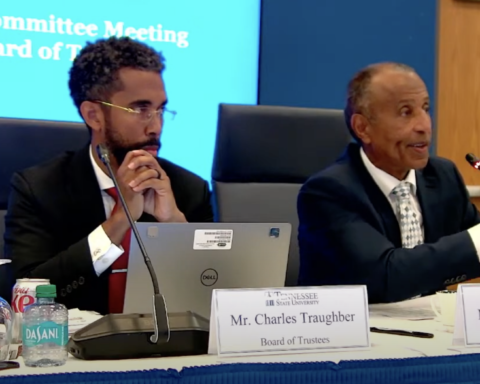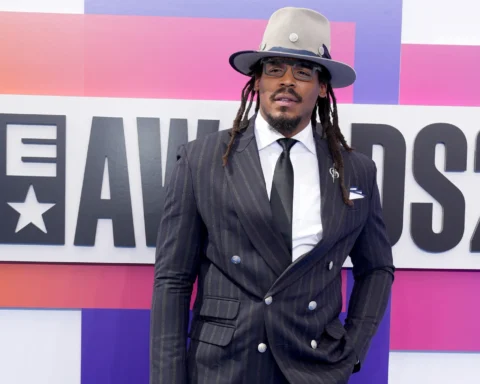By Lucas Johnson
For more than a decade, Tennessee State University history professor Learotha Williams has worked to highlight those unsung heroes of the civil rights movement in North Nashville. Now, with the help of Apple, Inc. and TSU’s National Center for SMART Technology Innovations, Dr. Williams is creating an app to do just that, and more.
When completed, the app will guide people on a walking tour of key landmarks in the movement, including the cafeteria (now called Elliott Hall) where TSU students were recruited for activism. Along the way, people will be able to hear interviews Williams conducted with civil rights luminaries through his North Nashville Heritage Project, which collects historical information about that part of the city.
“I want to highlight some voices I feel have been marginalized,” says Williams, who is often sought nationally for his historical perspective. “I feel that we don’t get the credit we deserve in terms of the Nashville movement. I will be sharing things that may have been overlooked, or people just didn’t talk about.”
Jasmine Sears, a junior history major from Atlanta with a concentration in teaching, is assisting Williams with historical research for the app. She says she’s excited about the reach the device will provide.
“I think it will serve as a good educational tool for people who can’t sit in the classroom and learn about Nashville and its impact in the civil rights movement,” says Sears. “More people will have access to this information.”
Johnathan Glover, another history major from Atlanta, is also helping Williams with research for the app.
“An app like this is important because not many people know the history of this community around TSU,” says Glover, who is minoring in geography. “And, point blank, people should know their history.”
John Lewis, James Lawson, Bernard Lafayette, and Diane Nash are well known names in the civil rights movement in Nashville. But there are others, like TSU alums Gloria McKissack, Elizabeth McClain, Ernest “Rip” Patton, and Kwame Lillard, who don’t receive the attention they deserve.
“If you can imagine being in a church that’s full of people fired up for the civil rights movement, I want to talk to the people on the back pew,” adds Williams. “The people whose presence was necessary, but oftentimes overlooked.”
Dr. Robin Blackman is senior program executive director for the HBCU C2 Initiative, which is part of the National Center for SMART Technology Innovations. She says the idea of the app stemmed from a conversation she had with Williams about his North Nashville Heritage Project.
“As we talked, I realized it was a great idea for the creation of an app by the Tennessee State University Inaugural HBCU C2 App Development Team,” says Blackman.
The team is a component of the HBCU C2 Grant Initiative, which is a partnership between TSU and Apple. TSU serves as the HBCU C2 national hub for training educators and preparing students by providing multiple pathways and opportunities to acquire essential digital literacies and technological skills of coding and creativity.
“The selection of the app was easy, given the mutual interest in history surrounding Tennessee State University and the focus of the research to highlight the impact of African American students, people, businesses, and the North Nashville Community on the struggle for civil rights,” says Blackman. “The app will provide a contemporary virtual, historical portrait of the significance and roles of the actors that influenced the life we currently live.”
Marc Aupont, an iOS Engineer with HBCU C2, is leading development of the app, and says he’s looking forward to “celebrating the rich history of North Nashville.”
“If we do our job correctly, we will inform, as well as celebrate, those folks that people may have not known before,” says Aupont. “And give North Nashville their due props.”
Dr. Robbie Melton, vice president of the SMART Technology Center and principal investigator for HBCU C2, says she plans to welcome 12 new historically black colleges and universities to the initiative in general.
“Our goal is to expand HBCU C2 to all our 106 HBCU Institutions,” says Melton. “This initiative is not just about coding, but empowering our HBCUs with the knowledge of digital literacy and technological skills required for today’s digital workplace and for tomorrow’s future technology innovations.”
The app is expected to be completed by May of this year.





